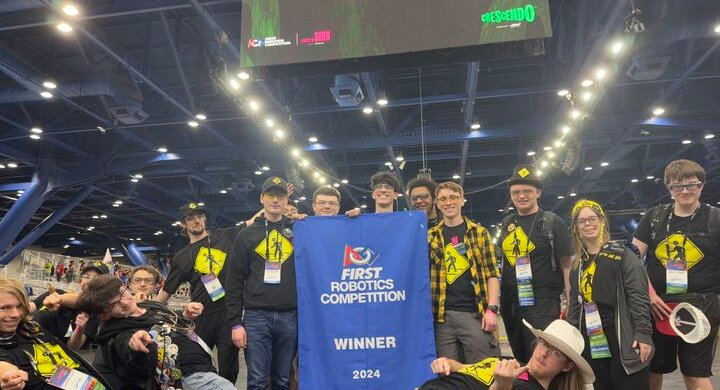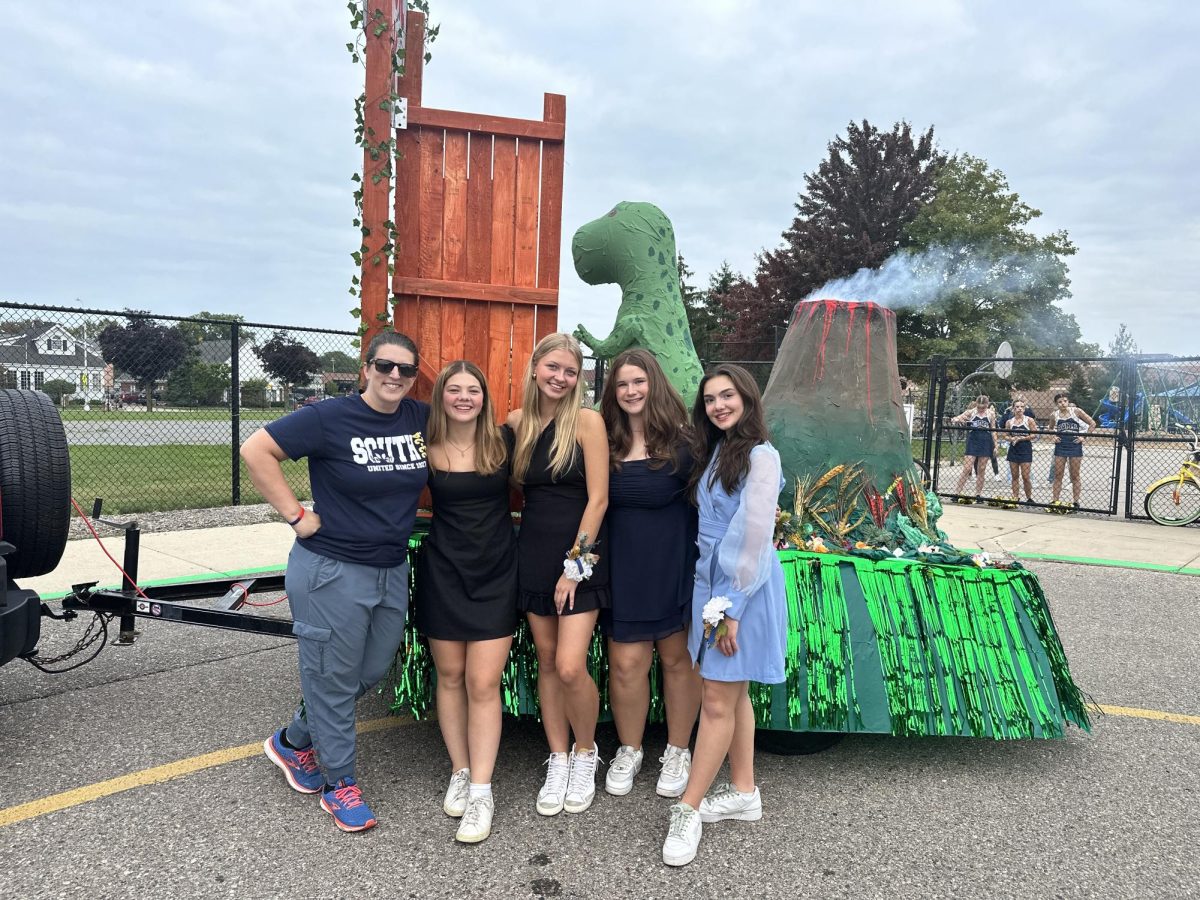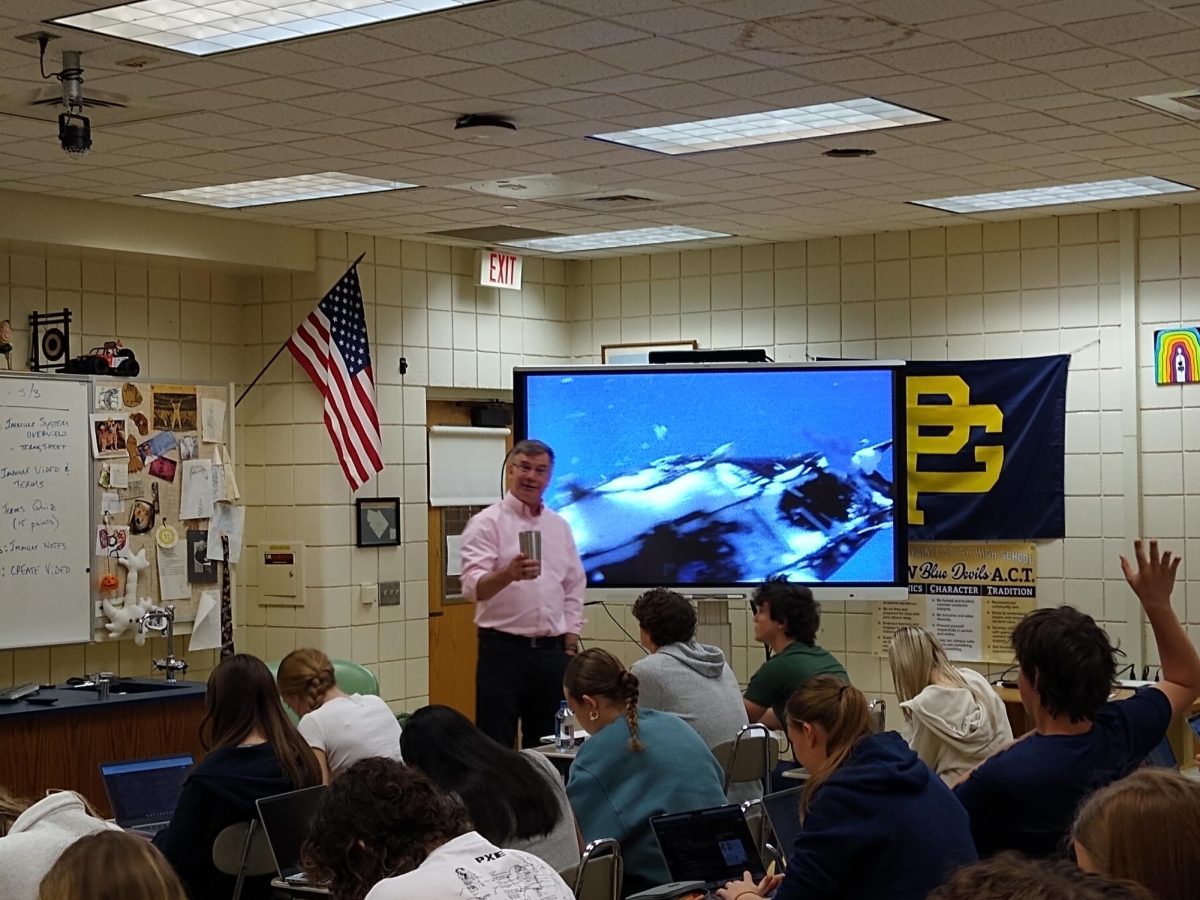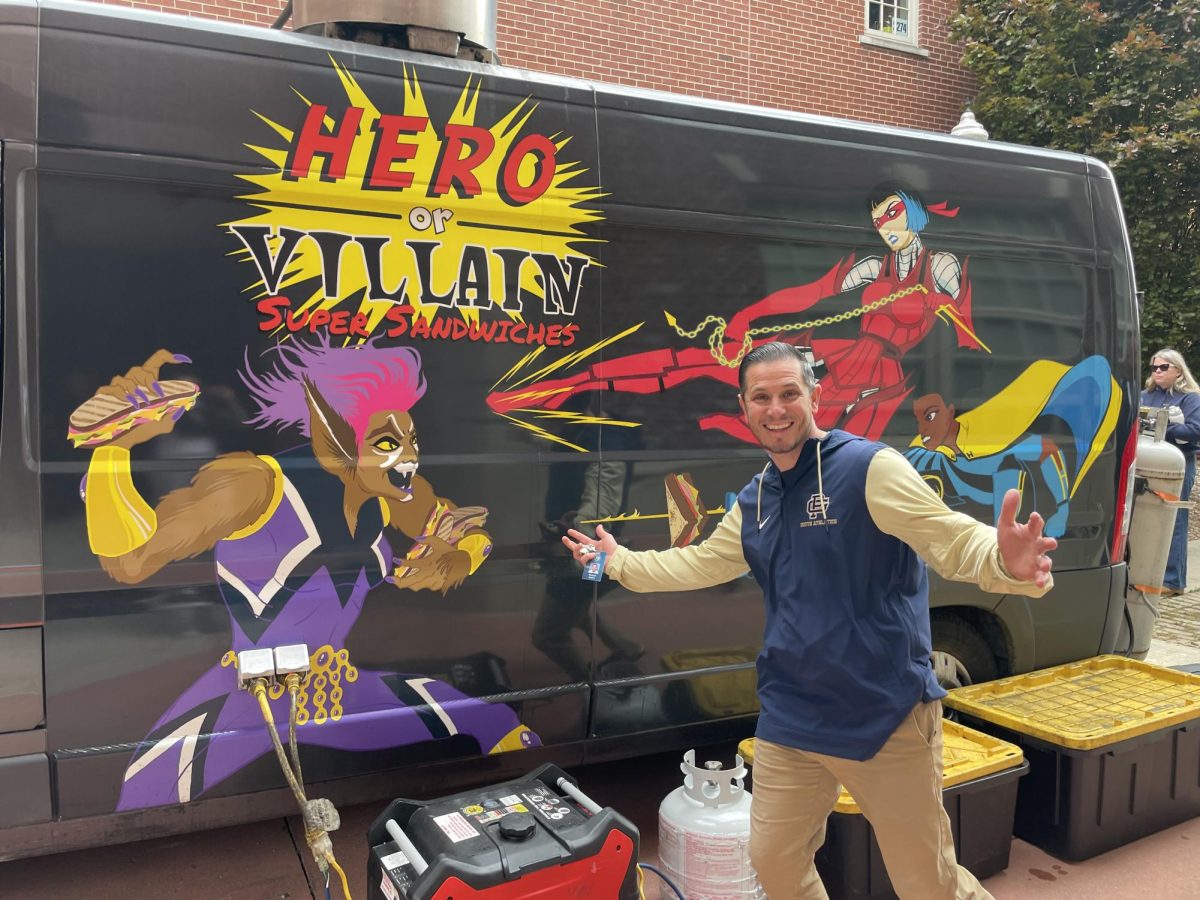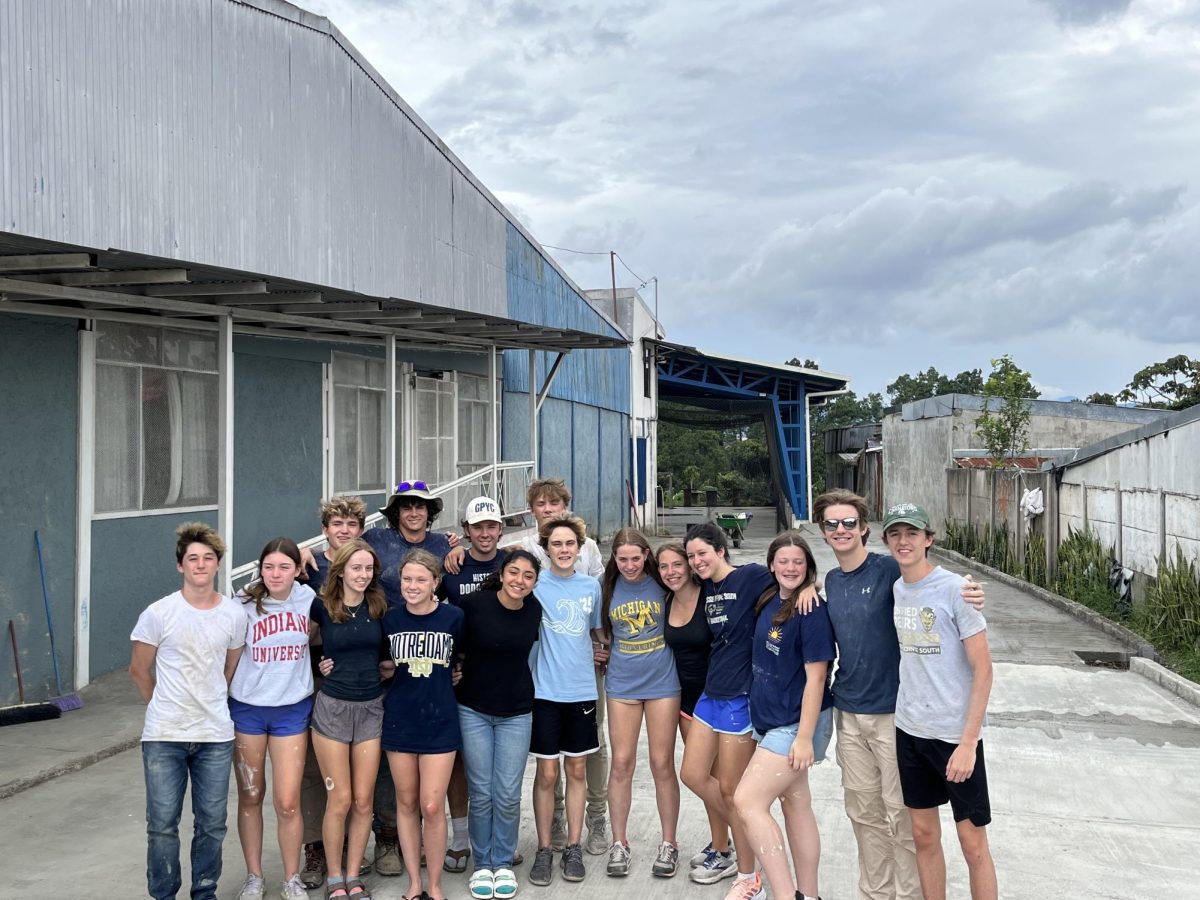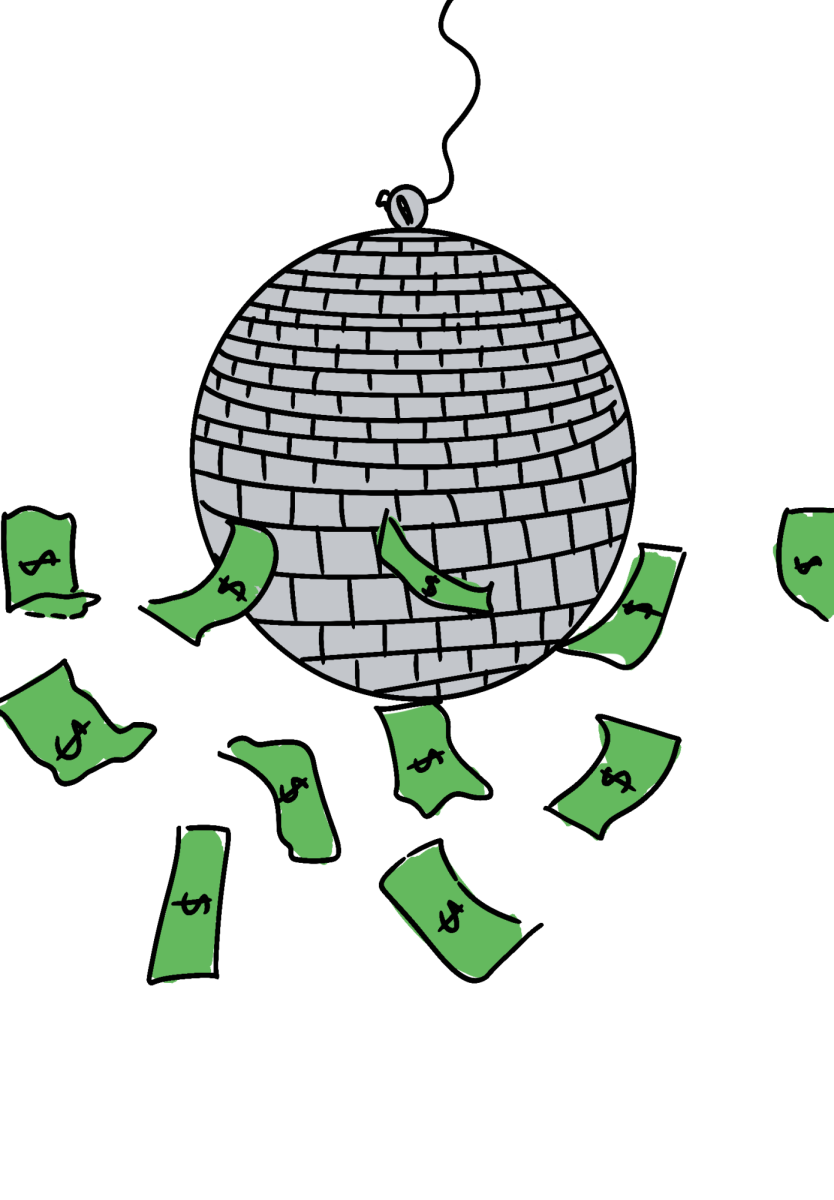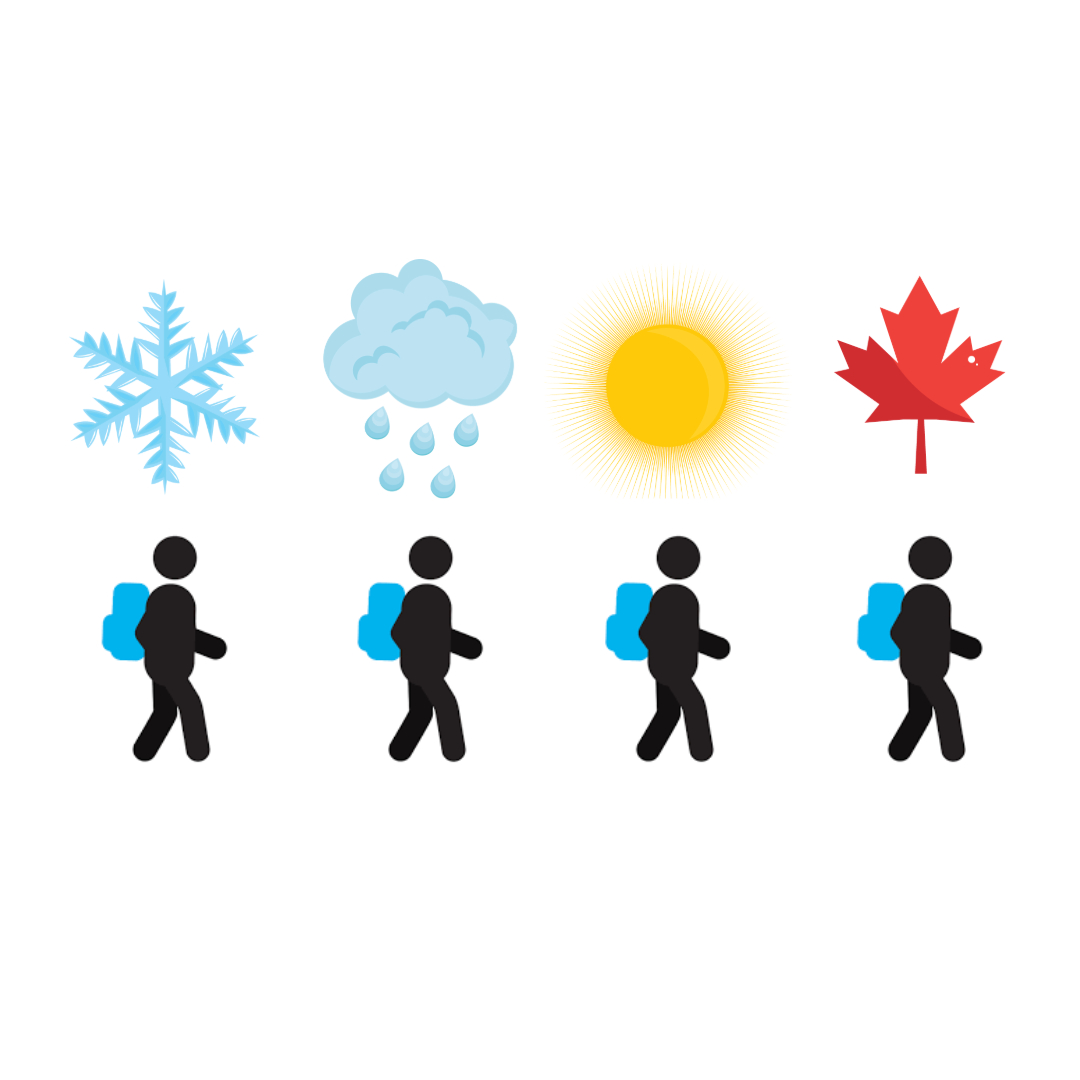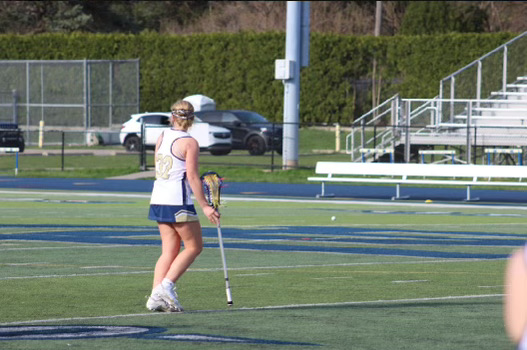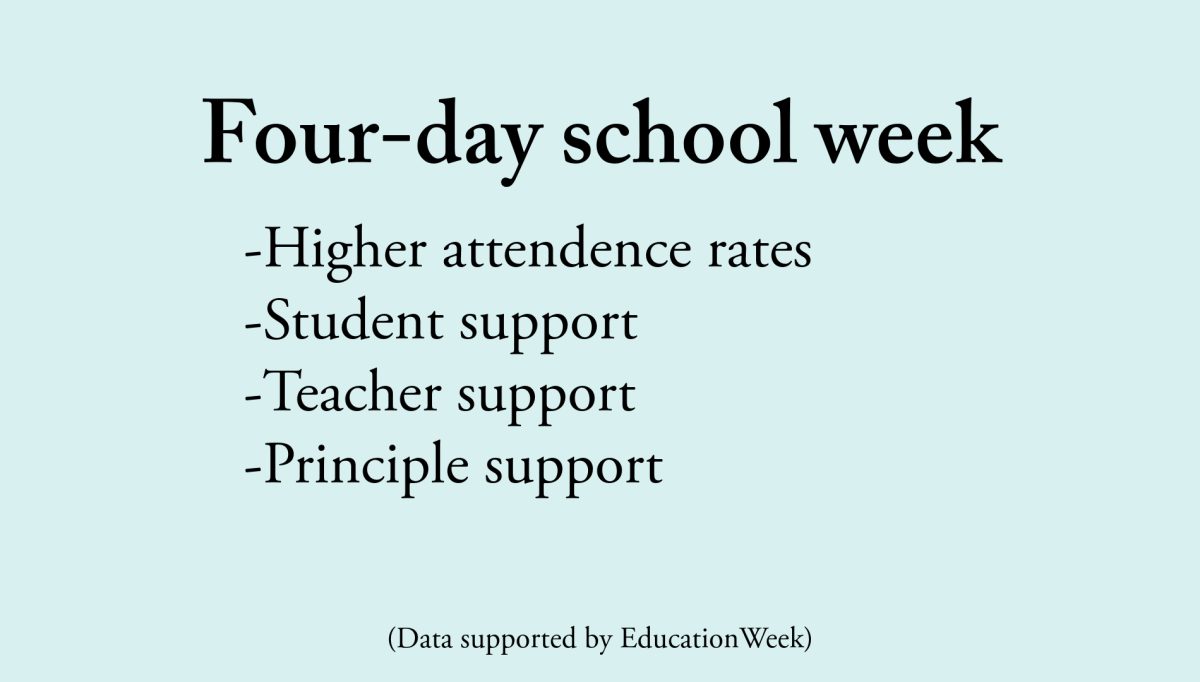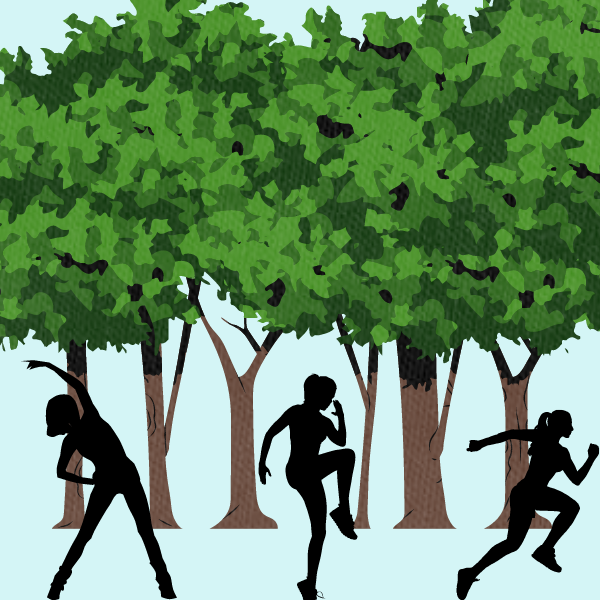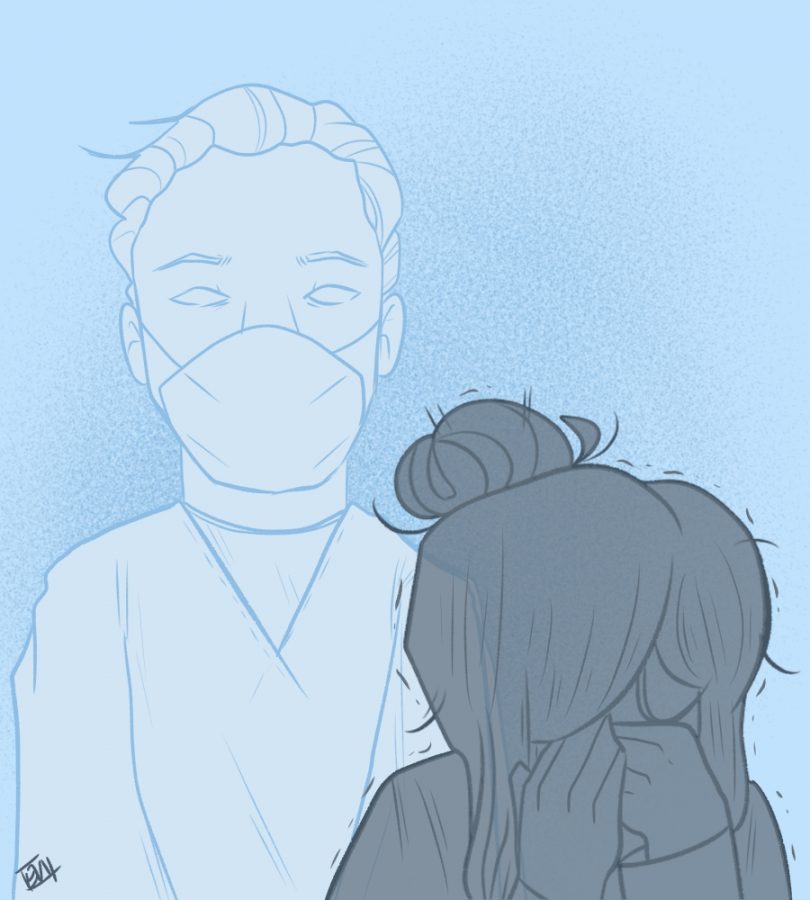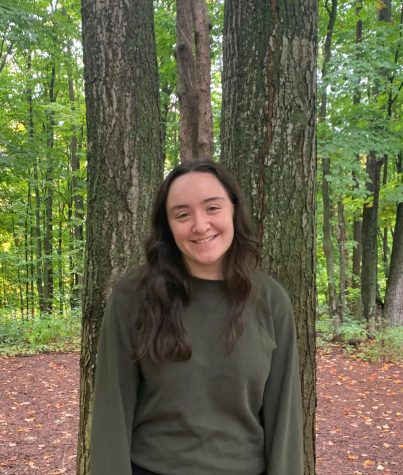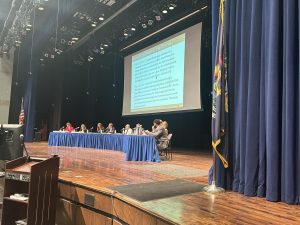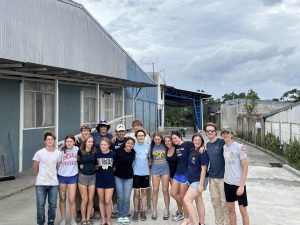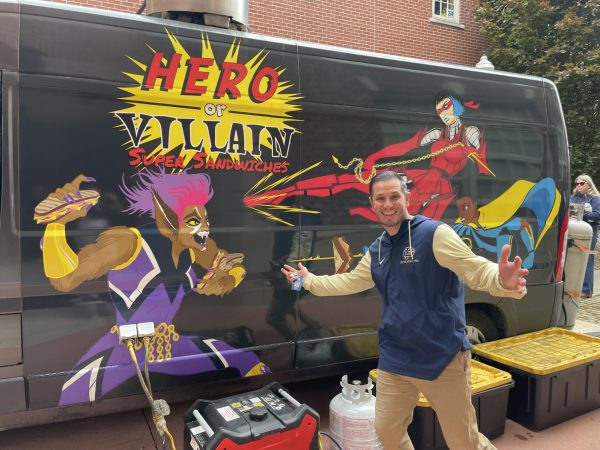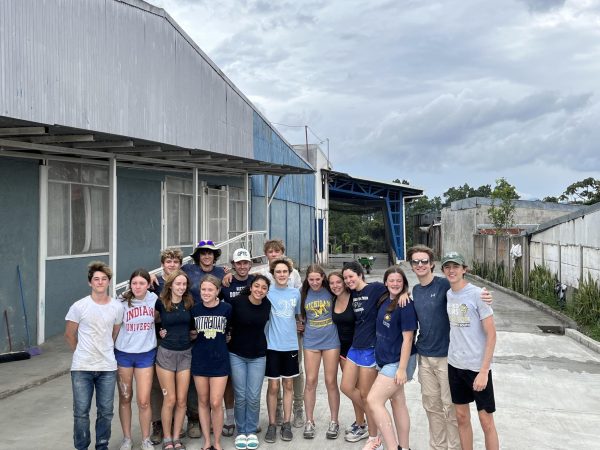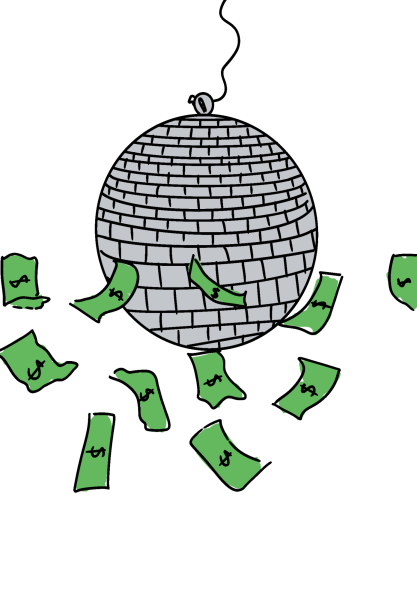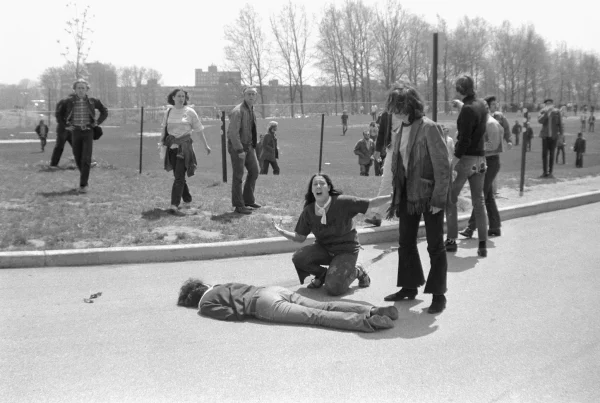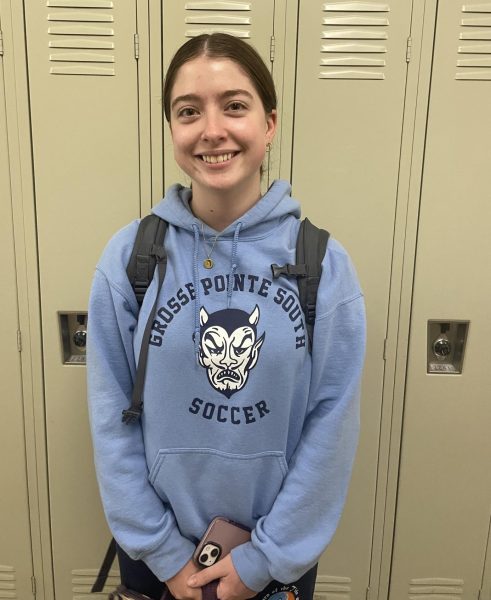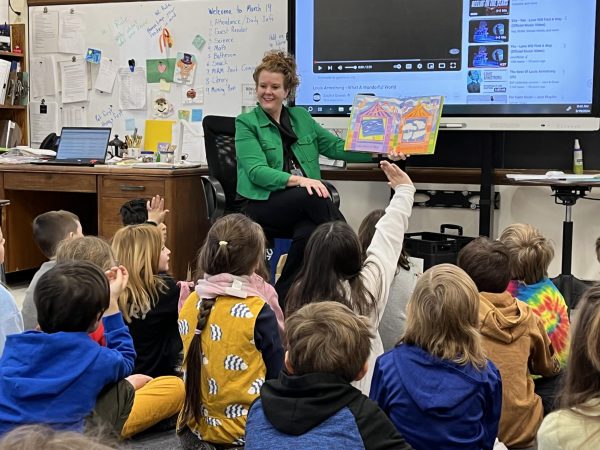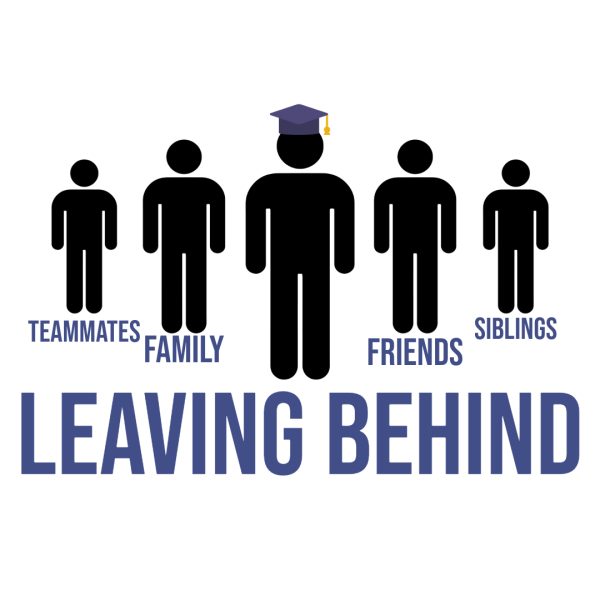Lives of those on the line
May 6, 2020
Heidi Kemper has been a registered nurse for 21 years, and has worked for Beaumont Health for 20 of those. She said she has never seen anything like the “once in 100 years” COVID-19 pandemic, and never will again.
According to Kemper, the week of April 20, almost 85 percent of inpatients at Beaumont Health were battling the coronavirus. Kemper, the mother of a South student, said COVID-19 has modified her life, both at work and at home.
“Every part of my job changed when COVID-19 broke out in Michigan because each of my nurses were reassigned to areas of the hospital designated for COVID-19 cases, since our department was trying to conserve hospital beds, staff and PPE (personal protective equipment) for the COVID patients,” Kemper said.
Stress has become extreme since the beginning of the COVID-19 pandemic, Kemper said, and added that hospitals were in “24/7 crisis mode” during the first three weeks that the virus was known to be spreading in Michigan. Paul Chrobak, an Emergency Room Attending Physician at DMC’s Harper Hospital and Detroit Receiving Hospital, agrees with Kemper that life as a medical worker has changed in large, noticeable ways since the outbreak began. Like Kemper, he said COVID-19 is not comparable to anything he has seen in his career, and maintains that while the HIV/AIDS epidemic was similar, “it is not really close.”
“It is hard to overstate how different work life has become,” Chrobak said. “From weeks of preparation, to a few weeks of madness, to now weeks of relative quiet, change has been constant.”
For Lizzy Bellovich ’21, life in the family of a physician has stayed relatively normal. Bellovich’s father is the Chief Medical Officer at St. John Ascension Hospital, just steps from Grosse Pointe Farms. She said she sees the pandemic in a different light, since she knows her dad is doing what he loves to do.
“Part of me feels super lucky that my dad is working in an area that he is needed and that he can make a difference in,” Bellovich said. “Although he is working on the front lines with patients who have COVID-19, I feel he is safe because of protective measures the hospital takes to protect their staff.”
Kemper is the site leader for PPE coaching at Beaumont Grosse Pointe. She said her job is to keep workers safe while using PPE and to be an extra set of hands and eyes.
“Staff is specially trained to do rounding in units to be a resource for people getting PPE equipment off and on multiple times a day,” Kemper said. “The equipment needs to be put on and taken off in a certain order, or staff can contaminate themselves.”
Aside from properly utilizing PPE- which includes a mask, face shield, gown and gloves- Chrobak said he follows other protective procedures, both within the hospital and when he gets home, to keep himself and others as safe as possible.
“To minimize anything that would require removing my mask, I don’t eat at work, I hardly drink water, change out of my clothes before I leave and shower immediately when I get home,” Chrobak said. “The germaphobe shuffle has added between 30-45 minutes to every shift.”
According to Chrobak, taking health risks comes with being a physician, but that doesn’t make it easier for him to do.
“I know I’m at risk for contracting COVID-19, but I try not to think about it,” Chrobak said. “Exposure to infectious diseases has always been part of the job, but there is definitely increased awareness and anxiety about potentially bringing it home to my family.”
As the daughter of a doctor, Bellovich understands Chrobak’s worry about his family. According to Bellovich, her dad continues to work 13 hour shifts at the hospital, so she sees him the same amount as before COVID-19. She said her family’s stress level is controlled, despite the risk.
“I worry more about the rest of my family because we have more contact within the community,” Bellovich said. “I am probably at more risk of contracting COVID-19 when I go to the grocery store than when I am home with my dad.”
On the note of community spread, Kemper believes the worst of COVID-19 may be over in Michigan.
“We are cautiously optimistic that Michigan has hit its peak daily increase of COVID-19 cases, but we are ready if there is another surge,” Kemper said.
Kemper leads a taskforce for spiritual care and emotional support of hospital staff at Beaumont. She said she has been investigating offering volunteer-provided mini-massage sessions and Reiki energy healing to support Beaumont staff.
“After this is over, there are going to be many medical professionals with Post Traumatic Stress Disorder,” Kemper said. “We are creating a ‘zen den’ stocked with comfy reclining chairs, dim lighting, essential oils, music, infused fruit water and healthy snacks for staff to go to for restoration and relaxation.”
Bellovich said the best way to help healthcare workers is to stay home, but there are other ways to help. Her mother and St. John workers have put together 3,000 laundry bags for all the nurses at St. John. Her mother has also organized donations of baked goods from their church. Chrobak said these acts do not go unnoticed by hospital staff.
“Community efforts like donations and signs are nice and deeply appreciated,” Chrobak said. “There is a feeling of powerlessness in how we respond to the virus both at the hospital and at home, so these gestures help keep people busy and help them feel they’re contributing.”
According to Chrobak, there are some things that do not help medical workers, including disregarding Governor Whitmer’s stay-at-home order. He said social distancing remains necessary.
“I’ll be polite and say that as a doctor working on the frontlines of this pandemic, I find gatherings like the April 15 protest in Lansing frustrating,” Chrobak said. “This pandemic, like everything these days, has become politicized, and messages coming from various officials are sometimes contradictory.”
Bellovich, Kemper, and Chrobak all agree that social distancing is important and helps hospitals manage their caseloads. Kemper said COVID-19 does not discriminate.
“This disease has touched every person on the planet,” Kemper said. “What I do affects you, and what you do affects me.”



